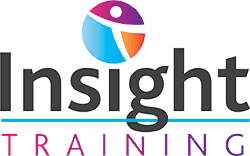Top 10 Highest Paying IT Jobs in Australia (+ Salary Data)

Australia’s tech industry is booming. It’s grown by 80% in just five years and is now valued at an impressive $167 billion. With this rapid growth comes increased demand for skilled professionals and soaring IT salaries that far exceed the national average.
So if you’re wondering whether a tech career is worth exploring, this is your sign. Current salary data shows that the highest salary levels in the IT industry are attracting more people to tech careers, as professionals seek out roles with top earning potential.
If you’re starting from scratch, switching careers, or ready to level up, these jobs offer future-proof pathways across almost every industry.
Let’s count down the top 10 highest-paying IT jobs in Australia.
Why IT is one of the best career paths in Australia
Tech jobs aren’t just about high salaries. They’re about growth, flexibility, and the chance to work at the edge of innovation. As more industries rely on artificial intelligence, cybersecurity, and cloud solutions, the need for skilled IT professionals is only rising. Entry-level roles are plentiful, providing excellent starting opportunities for those looking to break into the tech industry. And with the right training, it’s possible to move into six-figure positions faster than in many other fields.
Understanding the IT job market: Trends and outlook
The IT job market in Australia is experiencing unprecedented growth, fuelled by the rapid adoption of emerging technologies like artificial intelligence, cloud computing, and advanced machine learning models.
According to Jobs and Skills, employment in the IT sector is expected to continue growing at a rate of 3.8% per annum until 2030, far outpacing most other industries. This surge is creating a wealth of high-paying IT jobs, with companies across the country competing for skilled professionals who can drive innovation and manage complex systems.
Roles in data science, cyber security, and network architecture are especially in high demand, as organisations look to harness the power of data analysis and protect their digital assets. As a result, IT professionals with advanced skills, relevant education, and hands-on experience are commanding six-figure salaries and enjoying a wide range of job opportunities.
The message is clear: The IT job market is thriving, and those who keep their skills sharp are well-positioned to succeed.
The 10 Highest Paying IT Jobs in Australia
10. DevOps Engineer
Average Salary: $120,000
DevOps engineers streamline how software is built, tested, and deployed. They act as the crucial bridge between development and operations teams, automating workflows and improving collaboration to deliver better, faster, and more reliable systems. Their work ensures continuous integration and continuous delivery (CI/CD) pipelines run smoothly, reducing downtime and accelerating innovation.
Key skills:
- Docker, Kubernetes
- Scripting (Python, Bash)
- Cloud platforms (AWS, Azure)
- Automation tools (Jenkins, Ansible)
- Problem-solving and communication
How to get there: Many start in software development or system administration roles. Building expertise in DevOps tools and practices through certifications and hands-on projects is essential, and gaining experience with cloud infrastructure and automation will greatly enhance your prospects.
Why it pays: DevOps engineers speed up software delivery while maintaining system stability, which is a valuable combination that drives business success and innovation in the fast-paced IT sector.
DevOps engineers are the bridge between development and operations, streamlining processes and boosting performance. If you love solving system-level challenges, this role could be for you. Dive into the tools, training, and courses that can get you there.
9. Full Stack Developer
Average Salary: $143,750
Full-stack developers build the digital tools we use every day—from web apps to cloud systems, including a wide variety of software applications. They’re skilled in both front-end and back-end coding, enabling them to create seamless user experiences while managing server-side logic and databases.
Working across diverse industries, full-stack developers are versatile problem solvers who bridge the gap between design and functionality, often collaborating closely with product managers and designers to deliver end-to-end solutions.
Key skills:
- JavaScript, HTML, CSS
- Frameworks like React, Angular
- Cloud platforms (AWS, Azure)
- Database management
How to get there: Start with a coding bootcamp or short course. Build projects to showcase your skills and grow your portfolio. Earning a degree in computer science or a related field can also help you advance to more senior roles and increase your earning potential.
Why it pays: Companies want people who can do it all, and full-stack developers bring versatility and value.
Think like a programmer, build like a pro. Full-stack development is one of the most versatile and in-demand tech careers out there. Learn how to break into the industry, what skills employers want, and which courses can get you job-ready.
8. Software Development Manager
Average Salary: $155,000
These leaders manage tech teams, often leading teams of software developers, and oversee major software projects. They combine deep technical expertise with strong project and people management skills. Their role involves coordinating cross-functional teams, setting development standards, and ensuring timely delivery of high-quality software applications.
Key skills:
- Software engineering
- Agile project management
- Leadership and communication
How to get there: Work your way up from developer roles. Then, add leadership experience and certifications in Agile or Scrum.
Why it pays: They keep projects on track, on time, and on budget, delivering real business value.
Curious about coding? A career in software development could be your ticket to high-demand skills, flexible work, and real-world impact. Whether you’re just starting out or ready to retrain, discover the pathways, salaries, and course options that could launch your career in tech.
7. Data Scientist
Average Salary: $168,750
Data scientists turn raw information into powerful insights. Their work guides business decisions, from customer trends to product innovation. They analyse large datasets using advanced statistical methods, machine learning models, and predictive analytics to uncover patterns and forecast future outcomes.
Their expertise spans data wrangling, programming languages like Python and R, and data visualisation tools such as Power BI and Tableau, making them invaluable in today’s data-driven economy.
Key skills:
- Python, R, SQL
- Machine learning
- Data visualisation (Power BI, Tableau)
How to get there: Short courses and bootcamps are great for career changers. Build a project portfolio to stand out. Earning a master’s degree can open doors to senior data science roles and specialised career advancement.
Why it pays: Businesses need data, but few know how to unlock its full potential. That’s where data scientists shine.
Data engineers make it all run smoothly. If you’re into coding, architecture, and scalable systems, this career is worth a closer look. Find out what it takes to become a data engineer, what skills are in demand, and how to get qualified.
6. Solutions Architect
Average Salary: $176,250
Solution architects design the big picture. They map out how tech systems should work and ensure all parts fit together seamlessly. This role requires a deep understanding of systems integration, cloud architecture, and business needs.
Solution architects collaborate with stakeholders across technical and non-technical teams to translate complex requirements into scalable, efficient solutions.
Key skills:
- Systems integration
- Cloud architecture (AWS, Azure, GCP)
- Communication & leadership
How to get there: Start as a developer or systems engineer, then upskill with certifications like AWS Certified Solutions Architect.
Why it pays: Their decisions shape multi-million dollar projects. Getting it right is critical and well-rewarded. The growing demand for scalable and secure cloud solutions, especially amid digital transformation, has led to a surge in job openings for solutions architects.
5. Enterprise Architect
Average Salary: $182,500
Enterprise architects align an organisation’s tech strategy with its business goals. They shape the digital direction of a whole company by designing comprehensive IT frameworks that ensure all systems and technologies work together effectively.
Key skills:
- Broad IT knowledge across multiple domains
- Strategic planning and business acumen
- Frameworks like TOGAF and Zachman
- Strong communication and leadership abilities
How to get there: Gain experience across multiple IT roles, especially in systems architecture, project management, and business analysis. Pursuing strategic skills, such as an MBA or certifications in enterprise architecture, can significantly enhance your prospects.
Why it pays: Enterprise architects make critical decisions that influence the entire organisation’s technology landscape, directly impacting business success and competitive advantage.
Key skills:
- Broad IT knowledge
- Strategic planning
- Frameworks like TOGAF
How to get there: Gain experience across multiple IT roles, especially across various sectors. Strategic skills (like an MBA) can help.
Why it pays: They make the tech decisions that drive success—or failure.
4. Cyber Security Architect
Average Salary: $193,750
Cyber security architects build systems that protect organisations from cyber threats. In a world of data breaches, they’re essential. These professionals design and implement comprehensive security architectures that safeguard networks, applications, and data from increasingly sophisticated cyber attacks.
They evaluate existing security measures, identify vulnerabilities, and develop strategies to mitigate risks while ensuring compliance with industry standards and regulations.
Key skills:
- Security frameworks (ISO, NIST)
- Network and system design
- Risk management
- Security management
- Information security systems
How to get there: Start in security analysis or engineering, then specialise. Certifications like CISSP and CISM are highly valued. AI technologies are increasingly important in modern cyber security strategies, enabling advanced threat detection and response.
Why it pays: One breach can cost millions. Their job is to stop it before it starts.
3. IT Project Director
Average Salary: $190,000
Project directors lead large-scale tech projects. They are responsible for overseeing all aspects of these initiatives, from managing budgets and coordinating diverse teams to ensuring deadlines are met and project goals align with business objectives. This role requires strong leadership, excellent communication skills, and the ability to navigate complex stakeholder relationships
Key skills:
- Project and program management (Agile, PRINCE2)
- Budgeting and stakeholder engagement
- Risk management
How to get there: Work your way up through project management roles. Certifications help build credibility.
Why it pays: They deliver complex, high-stakes projects, and businesses pay well for peace of mind. Demand for IT project directors has increased significantly compared to previous years, reflecting the growing need for experienced leaders in technology initiatives.
2. Chief Information Security Officer (CISO)
Average Salary: $279,000
CISOs lead cyber security strategy at the highest level. They’re responsible for keeping entire organisations safe by developing and enforcing comprehensive security policies, managing risk assessments, and responding swiftly to cyber incidents.
Their role involves coordinating with various departments to ensure compliance with industry regulations and standards, such as ISO and NIST, while also overseeing the deployment of advanced security technologies like firewalls, encryption, and intrusion detection systems.
Key skills:
- Cybersecurity leadership
- Compliance and risk management
- Crisis response
How to get there: Build a deep foundation in cyber security. Leadership experience and certifications are essential.
Why it pays: The stakes are high—protecting sensitive data in a digital world is a serious job.
1. Chief Information Officer (CIO)
Average Salary: $300,000
The CIO sets the technology vision for the entire business and plays a pivotal role in aligning IT strategy with overall organisational goals. While the CIO is often the highest paying job and among the most highly compensated roles in IT, other leadership positions like the Chief Technology Officer (CTO) and Chief Information Security Officer (CISO) are also top paying in the industry.
Key skills:
- Strategic planning
- IT operations
- Executive leadership
- Understanding both strategic and technical aspects of IT leadership
How to get there: Gain experience across IT, then add business acumen (like an MBA). Experience as an it manager is a common stepping stone to the CIO role. Lead major initiatives to build credibility.
Why it pays: The CIO’s influence is organisation-wide. They shape the future—and earn accordingly.
The impact of emerging technologies and innovation
Innovation is at the heart of the IT industry’s explosive growth, with emerging technologies like quantum computing, artificial intelligence, and machine learning reshaping the landscape of high-paying IT jobs.
To stay ahead in this fast-evolving sector, IT professionals must continually update their skills and knowledge. Mastery of cyber security, risk management, and IT management is increasingly important, as is staying informed about the latest advancements in cloud technologies and machine learning.
Those who embrace these changes are finding themselves in line for some of the highest-paying roles in the industry, including chief technology officer, machine learning engineer, and software developer.
By combining technical expertise with a willingness to adapt, IT professionals can secure high salaries and build rewarding careers in one of Australia’s most dynamic and future-focused industries.
How to start your IT career (even if you’re a beginner)
Good news: You don’t need to be a tech expert to begin. Entry-level roles and beginner-friendly courses are everywhere. There are plenty of entry-level jobs in IT, offering practical experience and a pathway to more advanced positions.
Here’s how to get started:
- Explore beginner IT courses
- Learn in-demand skills like coding, cybersecurity, or cloud computing
- Stay up to date with new technologies to remain competitive in the industry
- Build a portfolio or gain experience through internships and projects
- Compare flexible options on Training.com.au

Want to break into IT? Here’s how to get started
Our latest guide breaks down the steps to starting a career in IT, even if you’re starting from scratch. Learn what skills are in demand, what roles you could aim for, and how to get qualified without needing a degree.
Your future in tech starts here
Whether you’re exploring new options, pivoting from another career, or levelling up, there’s never been a better time to join the tech world. The industry is growing. The salaries are rising. And the pathways are more accessible than ever.
So what are you waiting for? Start your IT journey today and browse courses below.
Browse Results
Diploma of Nursing (SA Only)
Build a meaningful career that makes a difference with the HLT54121 Diploma of Nursing. This nationally recognised qualification provides the essential skills, knowledge, and practical training needed to become a qualified Enrolled Nurse in Australia....


Graduate Diploma in Management
The Graduate Diploma in Management is an online postgraduate qualification that is ideal for busy senior managers, with a potential entry pathway through any of our Graduate Certificates and study that is highly supported, fits into your schedule, and...

Graduate Certificate in Management
The Graduate Certificate in Management is an online postgraduate qualification that is designed for newer and ambitious professionals, with entry possible through management experience alone and a study structure that easily accommodates full-time work...

Certificate III in Community Services (WA Only)
The Certificate III in Community Services is perfect for entry level community services workers who support individuals through the provision of person-centred services. Work may include day-to-day support of individuals in community settings or suppor...

Certificate IV in Fitness
Take the next step in your career and gain the qualification you need to become a Personal Trainer. If you currently work in the fitness industry as a Gym or Group Fitness Instructor, elevate yourself to the next level by studying the SIS40221 Certific...

Certificate III in Fitness
If you’re looking to begin your career in the fitness industry, studying the SIS30321 Certificate III in Fitness is the perfect qualification to get you started. Gain all the knowledge and skills you need to enter the industry as a Gym Instructor or Gr...

Personal Trainer Course
Join the fitness industry as a Personal Trainer and turn your love for fitness into a rewarding career by graduating in both the SIS30321 Certificate III in Fitness & SIS40221 Certificate IV in Fitness. Enjoy the flexibility of being your own boss...

Bachelor of Health Science (Clinical Nutrition)
Clinical nutritionists integrate traditional food wisdom and current scientific evidence to motivate individuals and communities to eat well and live healthier lives. The Bachelor of Health Science (Clinical Nutrition) is supported by a strong underpin...

Bachelor of Health Science (Naturopathy)
Naturopathy is a whole medical system combining theory (philosophy and principles) and practise that uses an array of natural therapies to support healing and maintain health. Naturopaths aim to treat the underlying causes of illness and disease. The c...

Certificate III in Community Services (Perth Only)
Are you a natural when it comes to providing guidance to people? Would you like to kick start a career in Community Services? The Certificate III in Community Services (CHC32015) is the perfect entry-level qualification for prospective Community Servic...

Certificate III in Individual Support (Ageing OR Disability) (Perth Only)
If you have a passion for helping those most in need, this qualification is one way you can utilise your knowledge for the benefit of others. Package the Certificate III in Individual Support (Ageing or Disability) (CHC33021) to save time and gain know...

Certificate lll in Early Childhood Education & Care (Perth Only)
If you love working with children and want to learn more about providing quality education and care in a range of environments, this course is for you. The Certificate lll in Early Childhood Education and Care (CHC30121) can provide you with an entry-l...

Certificate III in Individual Support (Disability) (SA Only)
The Certificate III in Individual Support (Disability) is designed to equip you with the practical skills and knowledge to support people living with disability in a variety of care settings. With a focus on person-centred support, you’ll learn how to...


Certificate III in Non-Emergency Patient Transport (VIC Only)
Our Promise We are confident in the delivery of our training. On successful completion of the course, graduates will be guaranteed a telephone interview for vacant Patient Transport Officer positions in the Non-Emergency Patient Transport division. So...

Diploma of Community Services (Perth Only)
The Diploma of Community Services qualification reflects the roles of community services, case management and social housing workers involved in the managing, co-ordinating and/or delivering of person-centred services to individuals, groups and communi...

Certificate IV in Business (Perth Only)
This qualification is suited to those working as administrators and project officers. In this role, individuals use well-developed skills and a broad knowledge base to apply solutions to a defined range of unpredictable problems and analyse information...

Certificate III in Process Manufacturing (Perth Only)
The Certificate III in Process Manufacturing is designed for those working or looking to work in production, warehousing, or factory roles. This hands-on course equips you with the practical skills needed to operate machinery, follow safety procedures,...

Certificate III in School-Based Education Support (Perth Only)
Are you interested in becoming a teacher’s aide? Work with teachers to create a comfortable and supportive environment for children’s learning. You will ensure lessons run smoothly while also developing the student’s literacy, numeracy and resear...

Certificate III in Allied Health Assistance (Perth Only)
A Certificate III in Allied Health is your entrance into the world of health services! This course will teach you to support workers in a range of fields such as audiology to social work. You will use your qualification to gain an entry-level job in ei...

Certificate III in Individual Support (Perth Only)
This qualification is for those who want to work in the community or in a residential setting, following a customised plan to give person-centred assistance to individuals who may need it due to ageing, disability or other circumstances. Work involves...




